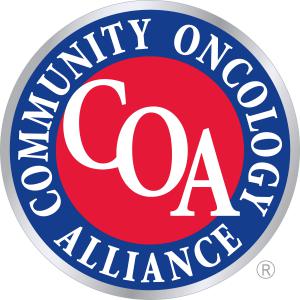COA Expresses Strong Opposition to Planned Radiation Oncology Model and Payment Cuts in Letter to Health Agencies
Implementing a Mandatory Model and Severe Medicare Payment Cuts During a Raging Pandemic Will Hurt Oncology Patients and Practices
While COA remains fundamentally opposed to mandatory CMMI models, it is more immediately concerned with the proposed implementation of the RO Model while the COVID-19 pandemic continues to burn like wildfire across the country with no end in sight. Forcing practices to take valuable resources away from patient care and safe operations to prepare for a model is shortsighted and completely unnecessary during this pandemic. Furthermore, the severe cuts to payments under the proposed Medicare Physician Fee Schedule for 2022 threaten the continued safe operations of practices at a time when they are needed most.
Despite 18 months of unprecedented operational, financial, and emotional stress, independent community oncology practices continue to stay open and bravely provide critical cancer care to patients during the surging COVID Delta variant. It is extremely disappointing for agency heads in Washington DC to advance the RO Model and payment cuts at this critical time. COA is requesting that CMS push back implementation of the RO Model until 2023 and stop any proposed Medicare payment cuts.
• Click here to read COA’s preliminary comment letter on the RO Model and Medicare payment cuts.
As noted in the letter, the United States is experiencing an explosive growth of COVID cases, with more than 100,000 new cases appearing per day, according to the Washington Post’s seven-day rolling average. In fact, in analyzing the distribution of the RO Model mandated participants by zip codes, 43 percent of the RO Model zip codes are above the median number of the COVID case rate. The proposed RO Model could not come at a worse time for community oncology practices who are once again fighting to keep their doors open to treat Americans with cancer as hospitals in many areas are overrun with cases of COVID. The federal government should not ask these practices to divert valuable resources away from treatment or cut reimbursement.
“We cannot comprehend the thought process behind the government’s decision to continue with implementation of the RO Model and Medicare payment cuts during the resurging COVID pandemic,” said Ted Okon, MBA, executive director of COA. “The health and safety of providers and their patients should be the top priority during this time. Continuing to push damaging payment changes and faulty reform models demonstrates that HHS, CMS, and CMMI are more concerned with the appearance of progress than actual, effective change.”
The financial impact of the RO Model and 2022 Physician Fee Schedule payment cuts will hurt cancer care providers in the U.S. In the letter, COA shares the results of its internal preliminary analysis using actual oncology practice data, which finds that the payment cuts will be far more severe than CMS states.
“President Biden has long been an ally to those of us in the cancer care community, so we are imploring him to delay implementation of the RO Model until we are through the COVID pandemic,” said Kashyap Patel, MD, president of COA and a practicing medical oncologist at Carolina Blood and Cancer Care Associates in Rock Hill, South Carolina. “It is hard to comprehend that the architect of the cancer moonshot would ask oncology professionals to divert valuable resources and put practices at risk during this global health emergency.”
In addition to objections with the RO Model’s timing and impact, the letter also reiterates COA’s fundamental opposition to mandatory government-designed models. By definition, “mandatory” models are top-down experiments forced on providers and their patients. COA has repeatedly expressed its willingness and ability to work with CMMI to create inventive models designed to lower cost and promote high-quality care. Unfortunately, these messages appear to have fallen on deaf ears. Instead, the RO Model will be forced on a large percentage of the country’s providers as a method of bypassing congressional authority in order to reduce Medicare spending. Providers will be forced to experiment with patient care while lacking the safeguards of clinical research.
Following these preliminary comments, COA will submit additional comments on the RO Model and the Medicare payment cuts, as well as other proposals included in the 2022 Physician and Outpatient Hospital Fee Schedules.
To read COA’s preliminary comment letter on the RO Model and Medicare payment cuts, visit https://communityoncology.org/preliminary-comment-letter-on-radiation-oncology-model-and-medicare-fee-cuts/.
###
About the Community Oncology Alliance: COA is a non-profit organization dedicated to advocating for community oncology practices and, most importantly, the patients they serve. COA is the only organization dedicated solely to community oncology where the majority of Americans with cancer are treated. The mission of COA is to ensure that patients with cancer receive quality, affordable, and accessible cancer care in their own communities. More than 1.5 million people in the United States are diagnosed with cancer each year, and deaths from the disease have been steadily declining due to earlier detection, diagnosis, and treatment. Learn more at www.CommunityOncology.org. Follow COA on Twitter at www.twitter.com/oncologyCOA or on Facebook at www.facebook.com/CommunityOncologyAlliance.
Nicolas Ferreyros
Community Oncology Alliance
+6466854262
email us here
Legal Disclaimer:
EIN Presswire provides this news content "as is" without warranty of any kind. We do not accept any responsibility or liability for the accuracy, content, images, videos, licenses, completeness, legality, or reliability of the information contained in this article. If you have any complaints or copyright issues related to this article, kindly contact the author above.

